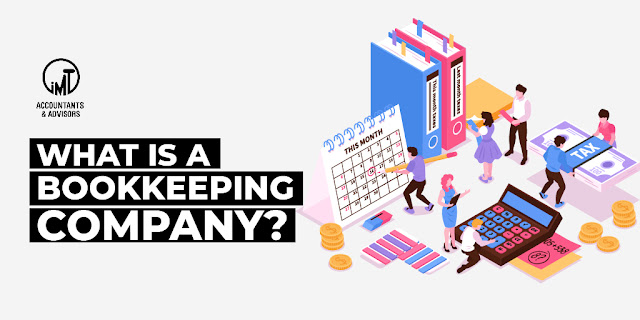Do Startups In Australia Need An Accountant?
For early-stage startups, investing in an accountant can seem like an unnecessary expense when every dollar counts. But navigating finances and compliance without expertise can torpedo your venture before it gains steam. On the flip side, the right accounting partner can pilot your startup to profitability. So do you really need an accountant as a high-growth startup in Australia? This blog will provide a 360-degree perspective on when and why an accountant makes sense. Weigh factors like costs, cash flow management, tax planning, and advisory support to determine the right timing and scope for your accounting needs. Because the difference between runway and liftoff often comes down to financial oversight. Let’s delve into the signs indicating it’s time to get an expert navigator on board.
The Startup Journey
Hitting the Ground Running
When startups in Australia embark on their entrepreneurial journey, they are often fueled by passion, innovative ideas, and a drive to disrupt the market. In the initial stages, the focus is predominantly on product development, market research, and building a customer base. However, overlooking the financial aspect of the business can lead to unforeseen challenges.
The Financial Maze
Navigating the financial aspects of a startup can be akin to traversing a maze. Entrepreneurs may find themselves grappling with questions about funding, budgeting, and financial forecasting. This is where a qualified accountant can be a valuable asset.
Why Startups Need Accountants
1. Financial Management
One of the primary reasons startups in Australia need accountants is for effective financial management. Accountants can help entrepreneurs create and maintain accurate financial records, develop budgets, and monitor cash flow. This proactive approach ensures that startups stay financially healthy and can make informed decisions.
2. Tax Compliance
Taxation laws in Australia are complex and subject to frequent changes. Startups need to comply with these regulations to avoid penalties and legal issues. Accountants specialize in tax matters and can ensure that your startup complies with all tax obligations while maximizing tax benefits.
3. Business Structuring
For startups, selecting the right business structure is critical. Accountants can advise on whether to register as a sole trader, partnership, company, or trust, taking into account factors like liability, taxation, and growth potential. This decision can significantly impact the long-term success of the business.
4. Financial Forecasting
Accurate financial forecasting is essential for startups to secure funding and make informed decisions. Accountants can assist in creating realistic financial projections that can be presented to investors or lenders, increasing the chances of securing much-needed capital.
5. Investor Relations
For startups seeking external funding, maintaining transparent and well-organized financial records is vital. Accountants can help startups prepare financial reports that instill confidence in investors, potentially attracting more funding opportunities.
FAQs About Accountants for Startups
Q1: How much do accountants for startups cost in Australia?
A1: The cost of hiring an accountant for a startup in Australia can vary depending on factors such as the complexity of the business, the services required, and the accountant's experience. It's advisable to obtain quotes from several accountants and choose one whose services align with your budget and needs.
Q2: Can I handle the accounting for my startup on my own?
A2: While it's possible for entrepreneurs to manage their startup's accounting, it's often a time-consuming and complex task. Hiring a professional accountant allows you to focus on growing your business while ensuring financial compliance.
Q3: Are there tax benefits to hiring an accountant for my startup?
A3: Yes, there are tax benefits to having an accountant for your startup. Accountants can help identify eligible deductions and credits, potentially reducing your tax liability and saving your business money.
Q4: When should I hire an accountant for my startup?
A4: It's advisable to hire an accountant for your startup as early as possible, preferably before you start trading. This ensures that your financial processes are set up correctly from the beginning and minimizes the risk of financial mismanagement.
Q5: What qualifications should I look for when hiring an accountant for my startup?
A5: When hiring an accountant for your startup, consider their qualifications, experience, and specialization in working with startups. Look for a certified public accountant (CPA) or a chartered accountant (CA) with a track record of helping businesses similar to yours.
Conclusion
In conclusion, the question of whether startups in Australia need an accountant can be answered with a resounding "yes." The support and expertise provided by accountants go far beyond number-crunching. They are instrumental in ensuring financial stability, compliance with regulations, and maximizing the potential for success. As you embark on your startup journey, remember that having a qualified accountant by your side can make all the difference in achieving your entrepreneurial dreams. So, don't hesitate to invest in professional accounting services and set your startup on the path to prosperity in the Australian business landscape.
Running an Australian Startup? Find an Accountant Near Me to Scale Up Successfully!
At IMT Accountants & Advisors, our team of Accountants in Australia provides dedicated support to high-growth startups. Manage cash flow, optimization, payroll, taxes, and more - with guidance tailored to your venture. Visit IMT Accountants & Advisors to learn about our startup-focused accounting services. With decades of experience in the Australian market, we can become your strategic growth partner. Reach out to find an accountant who gets startups!




Comments
Post a Comment